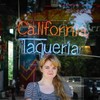Savage Garden were a flame that burned brightly, but quickly. Two smash hit albums, containing literally iconic tracks like "Truly Madly Deeply" and "Affirmation", followed by an acrimonious break up between singer-songwriter Darren Hayes and instrumentalist Daniel Jones. While Jones disappeared altogether, Hayes stuck around for a mid-2000s solo career that I, personally, followed with fervour. But he's mostly existed in obscurity since then—which is what makes this recent interview with Billboard such a treat.Speaking to writer Patrick Crowley, Hayes goes deep on his musical influences and triumphs—of how, for a "confused kid from the suburbs of Brisbane", attending a Michael Jackson concert in 1987 proved life-altering. But the most profound aspects of the interview concern sexuality, and what Hayes has to say on the topic is heart-wrenching and life-affirming at the same time. While LGBTQI musicians continue to face significant barriers to success in mainstream pop, the frank discussion offers an uncommonly candid look at just how much harder life was for queer musicians in the late 90s and early 2000s."I remember distinctly the message I got from the top down was that being gay was detrimental to sales. It was never stated, but heavily implied. You could tell it was the topic of many discussions, and I was marketed in a way that appealed to women," Hayes tells Crowley about his Savage Garden career.While Savage Garden rose to fame—and it's easy to forget just how unlikely and dramatic that meteoric rise was back in the day—Hayes was still married to a woman . While you can detect some subtle attempts to express a different side of himself (the interview touches on a cheeky moment when Savage Garden performed on the Jay Leno show and Hayes winked at the camera while singing the line "I believe you can't control or choose your sexuality"), he never felt comfortable enough to come out to the press while promoting the album that song appeared on. And yeah, back then an uncomfortable public outing from the closet was all the rage.For my fellow Hayes megafans, and I absolutely know you're out there, the interview also touches on his post-Savage solo career and the crafting of such perfect pop songs as "Insatiable". What's wonderful about most of this music compared to the hits of Savage Garden is that it is unapologetically "out", although Hayes notes that this made it relatively unpalatable for major label execs who openly mocked Ricky Martin for expressing his sexuality."My entire solo career was filled with songs about men. "Insatiable" is pretty explicit. My [2004] album The Tension and the Spark uses entirely male pronouns," he says.Sadly the interviewer neglects to query the story of "Popular"—my favourite Hayes solo hit—but you can't have everything.Honestly, how good is this man? How vital were Savage Garden? How many Australian pop duos came out with that many international hits in the space of two albums? I'm just a girl sitting in a warehouse office, listening to "Crash & Burn" on repeat, asking you to recall just how vastly proud we as a nation should be of 2000s pop musician Darren Hayes. And I won't apologise for it. I won't.Follow Kat on Twitter
Advertisement
Advertisement
